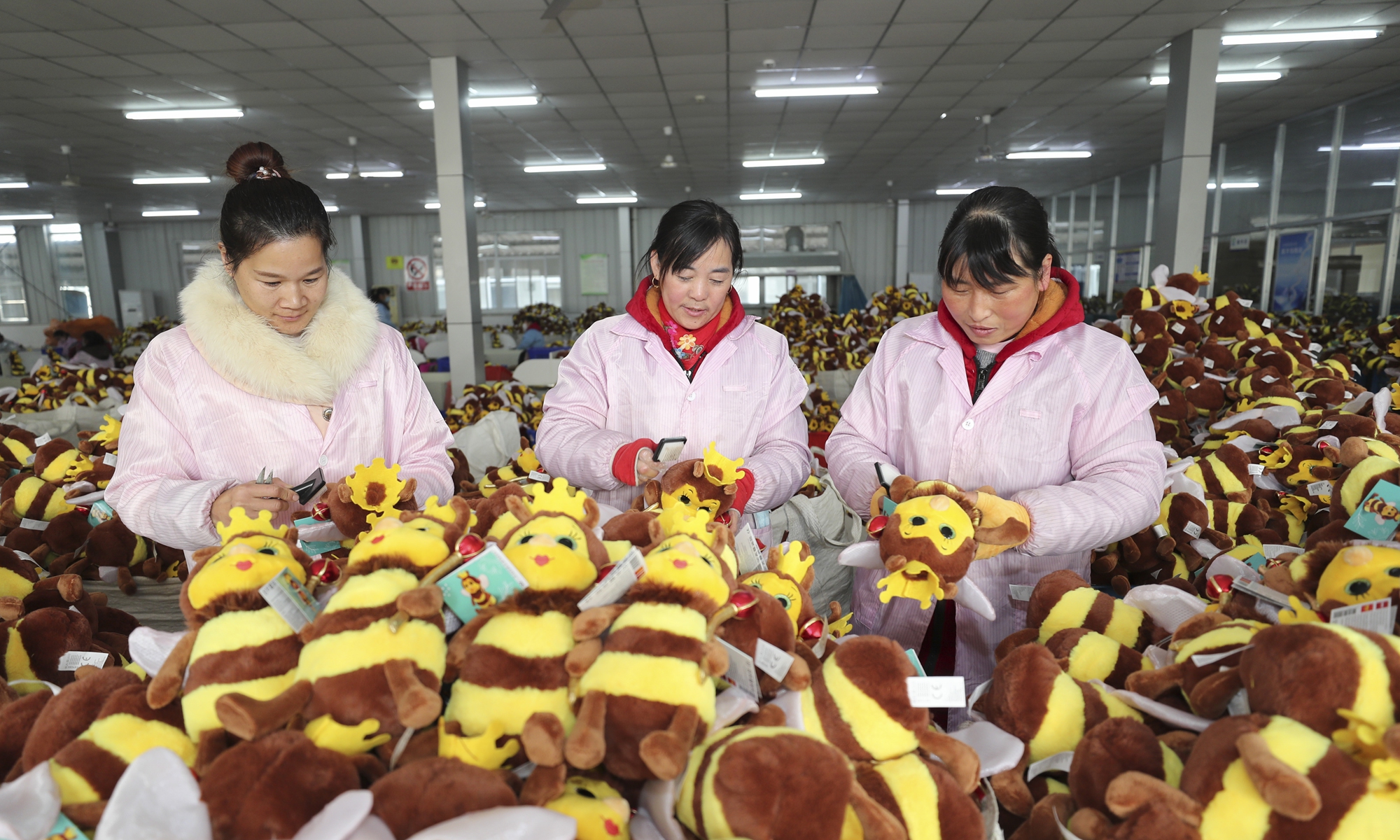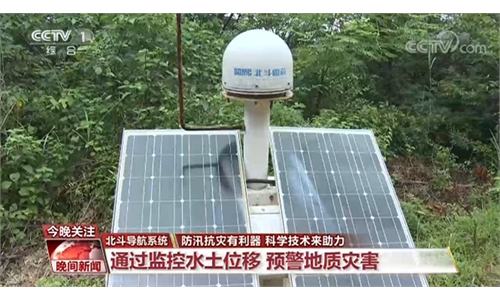'Buy American' unlikely to hurt Chinese exports
Businesses have domestic market to rely on, despite Biden's order

Workers manufacture toys at a factory in Lianyungang, East China’s Jiangsu Province on Thursday. The toys will be exported to the US and European markets. As Christmas and New Year approach, workers at hundreds of toy factories in Lianyungang have been working extra shifts to meet soaring demand. Photo: CNSphoto
An initiative by US President Joe Biden to boost domestic manufacturing by ordering federal government agencies to buy more US-made goods will not hurt Chinese exports to the US, which has lost most of its low- and medium-end industry chains, Chinese experts say.
They also predicted that Chinese manufacturing companies will have a better time during the Biden era than the time of his predecessor Donald Trump.
Biden signed an executive order on Monday with the goal of increasing the amount of made-in-US goods bought by the federal government as a way to boost the country's manufacturing sector, according to the White House website.
The administration disclosed a series of measures it would take to guarantee the implementation of the policy. For example, the US government will have a designated director to oversee the initiative, so that agencies and companies can't easily dodge the edict. It will also publicly post all waivers that seek to buy foreign parts.
The plan included increasing investment from the government side, which Biden said would amount to "hundreds of billions of dollars" in buying US products and materials. According to media reports, the Biden administration would spend $400 billion on manufacturing during his presidency and $300 billion in research and development.
Biden's policy tone has raised questions as to whether overseas companies, including Chinese businesses, would have fewer chances in the US market.
Economists, however, said that Biden's policy isn't feasible, particularly regarding low- and medium-end manufacturing.
"Even with money to buy, the US government won't be able to find enough domestic suppliers because the country has lost most of its low- and medium-end manufacturing sector," said Tian Yun, vice director of the Beijing Economic Operation Association.
"Nobody wants to move manufacturing from China or Southeast Asia back to the US, as costs would rise dramatically. If the US government wants to reverse the trend by pushing US companies to do that, US products will lose their competitive edge in the world," he told the Global Times.
He said that under Biden's policy, increased purchases are more likely to focus on high-end sectors like defense, and that would pose a threat on European and Asian companies like Samsung. China won't be influenced as it has not been an active supplier to US' advanced manufacturing.
Gao Lingyun, an expert from the Chinese Academy of Social Sciences, told the Global Times that US production capabilities have been significantly reduced due to the pandemic, while the country's demand for medical and household products has surged. This means that it has to rely heavily on Chinese goods.
Some experts warned that certain industries in China might be affected, particularly in areas where the US has developed a solid foundation, but they remained largely optimistic about improvement in business interactions.
"Agriculture and electronics, for example, would see fewer orders from US buyers. In general, however, no country, including the US, can do without Chinese products, particularly as their residents have seen their incomes dwindle during the pandemic and are in great need of cost-effective products, " Zhang Yi, CEO of Shenzhen-based iiMedia Research, told the Global Times.
Tian also said that the US is likely to stick to a loose monetary policy under Biden's Treasury Secretary Janet Yellen, formerly head of the Federal Reserve.
"That means the US government will make more purchases, and Chinese products might benefit," Tian said.
Even under a scenario in which bilateral relations become worse than in the Trump era, Chinese companies will not suffer much, considering the Chinese government's focus on dual circulation, which attaches great importance to exploration of domestic demand, experts said.
A manufacturer of disinfectant surnamed Xu told the Global Times he didn't care too much about whether Biden's policies are friendly toward China or not.
He said that his company's orders from the US have declined sharply recently, and he didn't know why. "But frankly speaking, I don't care, because domestic demand has more than filled the gap," he said.
Global Times




